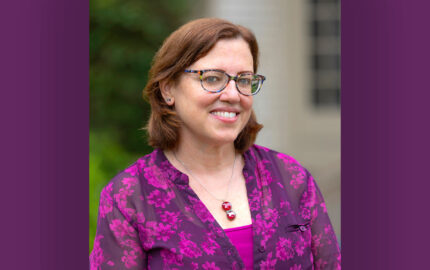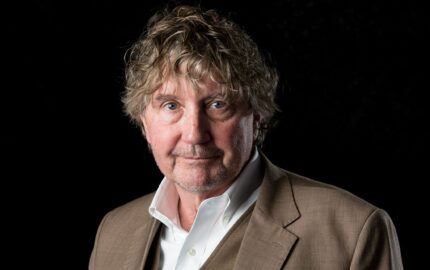Cecilia Alvear, NF ’89, who worked for NBC for 25 years and was a former president of the National Association of Hispanic Journalists, died April 21 in Santa Monica, California after battling cancer.
Cecilia Alvear, NF ’89, was among my biggest cheerleaders from the moment I met her online in 2008.
At the time, I was Havana bureau chief for The Associated Press and was in the process of applying for a Nieman fellowship.
A friend we had in common, journalist and author Anne-Marie O'Connor, suggested I contact Cecilia for advice.
Cecilia had been a Nieman Fellow, Anne-Marie said, and had served on the Nieman board.
"She really supports women, including veterans like you," Anne-Marie told me.
As a longtime Latin America hand, I had long heard of Cecilia, of course, and her work with NBC in the region. But we had never crossed paths. About 20 years older than me, Cecilia had retired by the time I started working in Latin America and the Caribbean.
Cecilia became an enthusiastic supporter of my quest to be named a Nieman Fellow, offering advice on my application essay and on the in-person interview process. Her support and affection were truly extraordinary considering we had never met in person. Later, I learned that she was like that way with everyone she decided to mentor—a 100 percent backer of any woman or minority member she thought was worth her time and energy.
During the application process, we joked that she was my Nieman "madrina"—godmother—and I sent her a movie house poster for the Cuban film "Cecilia." But it wasn't until after I was awarded a Nieman that I met Cecilia in person. It would have been 2009, and she was in Cambridge, Mass., for some kind of Nieman board business. We had breakfast at the restaurant in her hotel. She had this way of making you feel like you were the only other person in the room, and that everything you said was interesting and deeply important.
In the years that followed, Cecilia insisted that I become a mentor to future Nieman fellows, and help applicants—especially women, especially members of minorities—with their essays. "You have to give back," she wrote me. "Someone helped you, now you help someone."
We kept in touch through Facebook over the next few years, but I didn’t see Cecilia again until she visited Mexico City in 2013. By then, I was living in the Mexican capital working as an editor for AP’s Latin America operation, and the cancer she had fought two decades ago had returned—this time to her bones.
Cecilia was realistic about her illness. She knew that it would ultimately kill her, but she had decided to live her life as fully as she could, nurturing the people she cared about, commenting frequently on Facebook about U.S. politics and events in Latin America, especially her beloved native Ecuador. "I am hanging on!" she told me.
Cecilia Alvear, NF ’89, was among my biggest cheerleaders from the moment I met her online in 2008.
At the time, I was Havana bureau chief for The Associated Press and was in the process of applying for a Nieman fellowship.
A friend we had in common, journalist and author Anne-Marie O'Connor, suggested I contact Cecilia for advice.
Cecilia had been a Nieman Fellow, Anne-Marie said, and had served on the Nieman board.
"She really supports women, including veterans like you," Anne-Marie told me.
As a longtime Latin America hand, I had long heard of Cecilia, of course, and her work with NBC in the region. But we had never crossed paths. About 20 years older than me, Cecilia had retired by the time I started working in Latin America and the Caribbean.
Cecilia became an enthusiastic supporter of my quest to be named a Nieman Fellow, offering advice on my application essay and on the in-person interview process. Her support and affection were truly extraordinary considering we had never met in person. Later, I learned that she was like that way with everyone she decided to mentor—a 100 percent backer of any woman or minority member she thought was worth her time and energy.
During the application process, we joked that she was my Nieman "madrina"—godmother—and I sent her a movie house poster for the Cuban film "Cecilia." But it wasn't until after I was awarded a Nieman that I met Cecilia in person. It would have been 2009, and she was in Cambridge, Mass., for some kind of Nieman board business. We had breakfast at the restaurant in her hotel. She had this way of making you feel like you were the only other person in the room, and that everything you said was interesting and deeply important.
In the years that followed, Cecilia insisted that I become a mentor to future Nieman fellows, and help applicants—especially women, especially members of minorities—with their essays. "You have to give back," she wrote me. "Someone helped you, now you help someone."
We kept in touch through Facebook over the next few years, but I didn’t see Cecilia again until she visited Mexico City in 2013. By then, I was living in the Mexican capital working as an editor for AP’s Latin America operation, and the cancer she had fought two decades ago had returned—this time to her bones.
Cecilia was realistic about her illness. She knew that it would ultimately kill her, but she had decided to live her life as fully as she could, nurturing the people she cared about, commenting frequently on Facebook about U.S. politics and events in Latin America, especially her beloved native Ecuador. "I am hanging on!" she told me.


